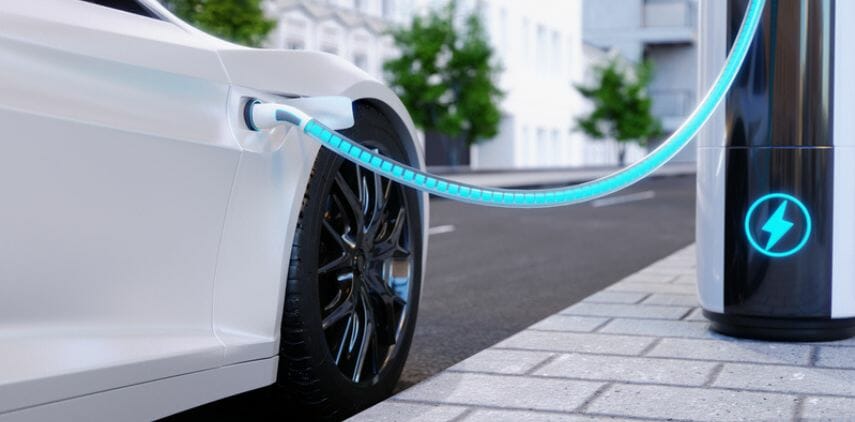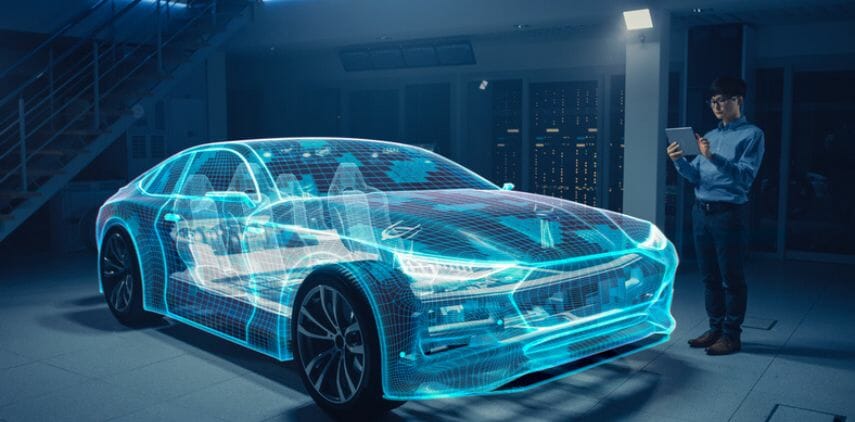Overview
With increasing discussions about fuel efficiency, gas costs, and climate impact, electric and hybrid cars have experienced a boom in popularity, and SUVs are no exception. Electric SUVs share most of the same features as traditional SUVs; however, they offer positives that you can’t get with conventional gas-powered SUVs. If you’re considering a new SUV, you’ll want to explore the advantages of an electric option over a conventional vehicle. Familiarize yourself with the benefits of electric SUVs to decide if they’re right for you.
Table of Contents
Benefits of Electric SUVs
Electric SUVs have multiple benefits, including reduced expenses and emissions and increased fuel efficiency.
-
Reduced Car Costs
While the initial costs of an electric SUV can induce some sticker shock, it’s possible to get a federal tax credit by buying or leasing an electric SUV. Several states and local areas offer incentives for purchasing electric or hybrid vehicles. You can search for these incentives on the US Department of Energy’s website to see what’s available for your location. Additionally, powering an electric vehicle costs less than a gas option. The cost of charging an electric SUV is dependent on the cost of electricity, which is typically substantially cheaper than gasoline. Gas-powered vehicles tend to have higher fuel costs, and charging an electric SUV will help you save money. One study found that fueling an electric vehicle costs about $485 per year versus $1,117 for gas. Finally, electric SUVs tend to require less maintenance over time. Since they don’t have the same mechanisms as gas-powered SUVs, they have fewer moving parts needing to be tuned up or replaced. Even the brake pads last longer: electric vehicles use a mechanism known as regenerative braking, which slows down your car primarily through the electric motor and reduces wear and tear on your brake pads.
-
Increased Fuel Efficiency
Compared to gas-powered SUVs, electric SUVs often have much higher fuel efficiency. The list of 2022 SUVs on fueleconomy.gov shows that most gas-powered SUVs average between 16 and 20 miles per gallon. Electric vehicles measure fuel efficiently slightly differently. Even the least efficient electric car on the list reaches about 63 MPGe (miles-per-gallon equivalent). Electric SUVs also use regenerative braking to recapture energy when you hit the brakes. This gives them an advantage over gas-powered SUVs, which don’t have regenerative braking systems and end up burning energy rather than reusing it. Of course, every car model is different, whether it’s gas or electric. If you’re curious about your car’s fuel efficiency compared to an electric SUV, compare the efficiency of specific car models on fueleconomy.gov.
-
Reduced Emissions
With increasing discussion about the impact of carbon emissions on the planet, individuals and manufacturers alike have been seeking to lower their cars’ tailpipe emissions. The environmentally conscious will be thrilled to know that electric SUVs are more eco-friendly than gas-powered SUVs because they have fewer harmful emissions than their combustion engine counterparts. When driving your SUV, its eco-friendliness depends on its EV type. Fully electric vehicles don’t use gas, so driving the car doesn’t contribute to emissions. Plug-in hybrid electric vehicles, which have a battery and a gas tank, are a bit more complicated. These models don’t contribute to emissions in electric-only mode, but they do if they’re using gas. It’s important to consider that even fully electric cars contribute to carbon emissions through the charging process. If the power at your charging station is provided by an emission-heavy source, like natural gas or coal, charging your electric SUV still contributes a fair amount to carbon emissions. On the other hand, charging stations powered by renewable energy systems (like solar panels or windmills) don’t expel carbon and are less cause for concern.
Is an Electric SUV Right for You?
Electric SUVs have pros and cons, like any car, and they’re not the best choice for everyone. When deciding whether to get an electric SUV, you must consider factors specific to electric cars, like where you can charge, how far you’ll drive, and how the outside temperature can affect your SUV.
-
Available Charging Locations
Charging stations for electric vehicles are becoming more commonplace, and it’s easier than ever to find them in urban areas. However, charging stations are still less common than gas stations, especially outside urban locations. In some places, there might be few to no charging stations around, making charging at home your only option. Electric SUVs can be a good option if you live in an urban or suburban area since you’ll have less difficulty finding charging stations. On the other hand, if you live in a rural area or regularly go off-the-grid, you’ll likely have limited options for charging your car, making a plug-in hybrid or gas car a better option. If you’re not sure what the charging infrastructure is like in your area, the US Department of Energy provides a map of EV charging stations across the US and Canada. This map can help you plan where to find charging stations near your home, work, or travel destination.
-
Typical Driving Range
The driving range of electric SUVs has increased dramatically and is expected to continue rising in the coming years. Many of them aren’t currently built for cross-country road trips. Even if you start your trip with a full charge, you’ll need to stop to charge your car more often than you would need to stop to get gas. An electric SUV can be a great choice if you primarily drive short distances or use your SUV around town. If you frequently make long-distance drives, you may want to wait on getting an electric SUV and look into plug-in hybrids or gas-powered cars instead.
-
Local Climate
Electric SUVs are relatively resilient, but compared to gas-powered cars, they don’t hold up quite as well against extreme temperatures. Battery packs in most EVs currently last between 12 and 15 years, but their lifespan drops to between 8 and 12 years when regularly exposed to extreme heat or cold. That means you’ll need to replace the battery (which can be extremely expensive) or get a new car more often than if your car ran on gas. Of course, climate extremes don’t mean you have to rule out an electric SUV entirely: it just means you should expect your car’s lifespan to be a bit shorter and that you’ll need to keep up with maintenance to extend your usage. If climate extremes are rare where you live, you likely don’t need to be concerned about their impact on your SUV’s lifespan.
Choose Your Next SUV with the Help of SUViews
Choosing an SUV is a significant decision and requires you to research your options before making such a big purchase. While a conventional SUV may seem more convenient, an electric SUV is an excellent option if you’re concerned with environmental causes or looking to save money on fuel efficiency. Whether you’re looking for a gas or electric SUV, picking your next SUV is much easier with SUViews. Browse reviews of the latest SUVs to get a feel for what they’re like so you can make the best decision for your lifestyle and wallet.






